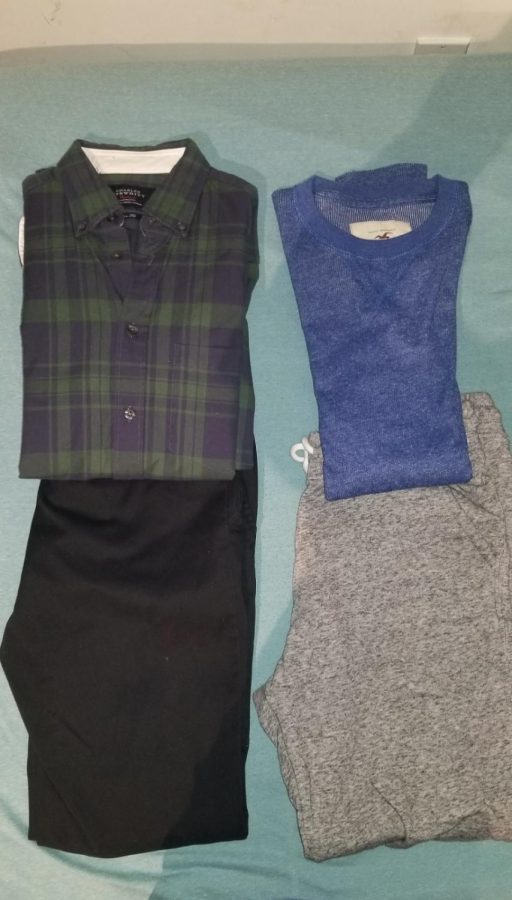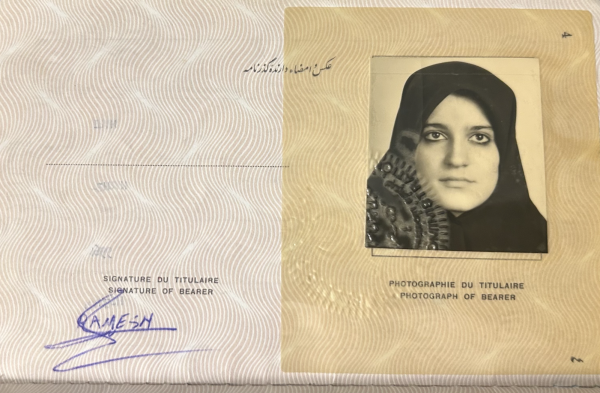Opinion: Wearing formal clothing to school may have some benefits
A more formal outfit that Adin wore to school on the left, and a casual outfit that he wears on any other day.
November 28, 2022
“Why are you dressed up? Are you on Debate? Is there a Mock Trial?” I am not on the debate team, and there was no Mock Trial match. I was just wearing a button-down shirt at school.
I don’t blame my peers for assuming I had a particular reason for dressing up. After all, I rarely dress in anything more formal than a T-shirt and sweatpants, which garners comments from my father about forgetting to get dressed in the morning.
However, on that day, I did have a particular reason for dressing up – this article.
While I don’t normally dress up for school and don’t plan to do so on a regular basis, I encourage my classmates to try it. During my three-day research period for this article, I wore a button-down shirt and “real pants” every day, and to be honest, almost nothing changed. In fact, I often forgot I was dressed up, only to be reminded by a classmate asking for the reason behind my formalness.
One day during my research period, a friend of mine decided to dress up with me. That day was the day of a presentation in our English class. The goal of the assignment was to be an effective speaker. My friend’s formal attire appealed to me as a listener, making him seem more credible and therefore more successful in completing this assignment.
Additionally, a Columbia University study titled The Cognitive Consequences of Formal Clothing says that formal wear enhances mental processing. In one part of the study, they had students rate their outfit’s formalness on a scale of -50 to +50 before filling out a form. The form contained multiple choice questions, with some more complicated answer choices, which showed a more complex understanding, and other answers which were more simple, showing a more basic understanding. They found that students who rated their outfits as more formal were more likely to have a complex understanding of the question than their less formal counterparts. This shows that not only can formal clothing make you appear smarter, it can also improve your academic performance.
Personally, I did not notice any improvement in my academic abilities when I wore nicer clothes. I am in no way trying to discredit the study, as there are many ways to explain why my grades did not improve, not the least of which is the incredibly short trial period of three days. In fact, this study might influence me to wear more formal clothes on days with major exams, though I wouldn’t recommend it before I try it myself.
All this being said, button-downs are not as cozy as hoodies, and khakis are not as comfortable as sweatpants. Comfort is important to me, and that is why I don’t plan on dressing formally every day. Nevertheless, I urge every student to at least try dressing up for school. It can be just for one day, and then if it’s not for you, you can return to whatever clothes you wore before. Don’t knock it until you try it.














